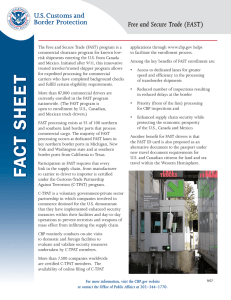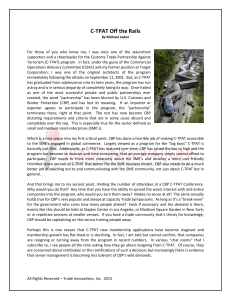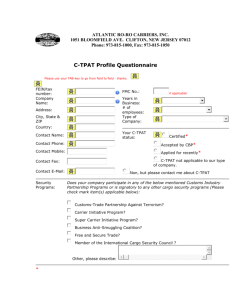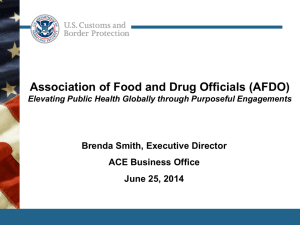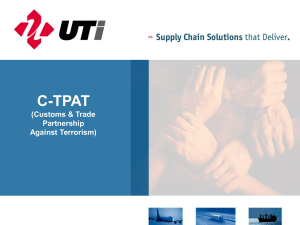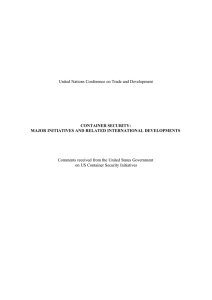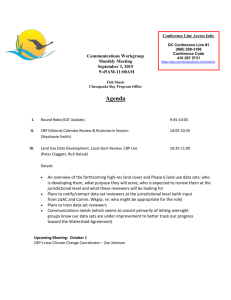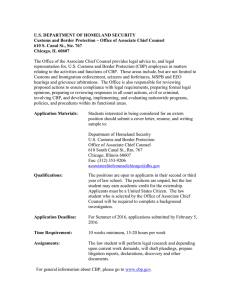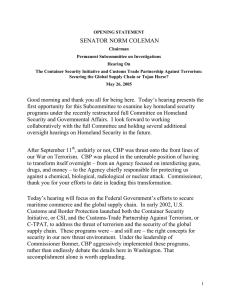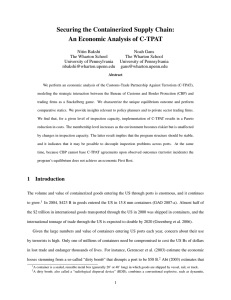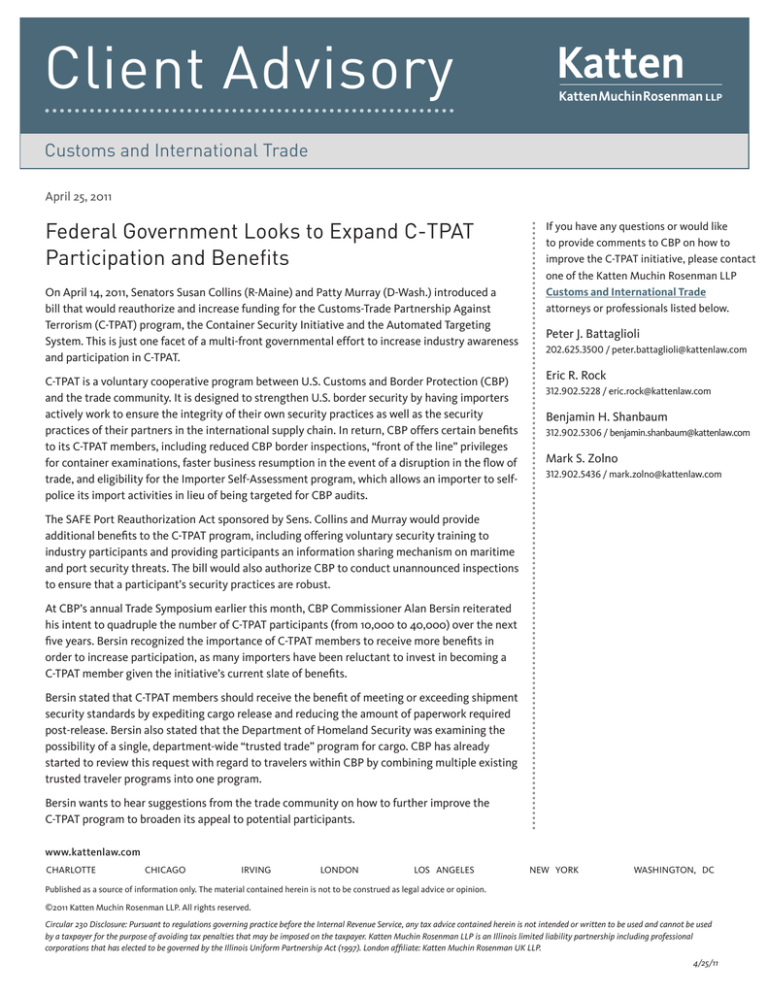
Client Advisory
Customs and International Trade
April 25, 2011
Federal Government Looks to Expand C-TPAT
Participation and Benefits
On April 14, 2011, Senators Susan Collins (R-Maine) and Patty Murray (D-Wash.) introduced a
bill that would reauthorize and increase funding for the Customs-Trade Partnership Against
Terrorism (C-TPAT) program, the Container Security Initiative and the Automated Targeting
System. This is just one facet of a multi-front governmental effort to increase industry awareness
and participation in C-TPAT.
C-TPAT is a voluntary cooperative program between U.S. Customs and Border Protection (CBP)
and the trade community. It is designed to strengthen U.S. border security by having importers
actively work to ensure the integrity of their own security practices as well as the security
practices of their partners in the international supply chain. In return, CBP offers certain benefits
to its C-TPAT members, including reduced CBP border inspections, “front of the line” privileges
for container examinations, faster business resumption in the event of a disruption in the flow of
trade, and eligibility for the Importer Self-Assessment program, which allows an importer to selfpolice its import activities in lieu of being targeted for CBP audits.
If you have any questions or would like
to provide comments to CBP on how to
improve the C-TPAT initiative, please contact
one of the Katten Muchin Rosenman LLP
Customs and International Trade
attorneys or professionals listed below.
Peter J. Battaglioli
202.625.3500 / peter.battaglioli@kattenlaw.com
Eric R. Rock
312.902.5228 / eric.rock@kattenlaw.com
Benjamin H. Shanbaum
312.902.5306 / benjamin.shanbaum@kattenlaw.com
Mark S. Zolno
312.902.5436 / mark.zolno@kattenlaw.com
The SAFE Port Reauthorization Act sponsored by Sens. Collins and Murray would provide
additional benefits to the C-TPAT program, including offering voluntary security training to
industry participants and providing participants an information sharing mechanism on maritime
and port security threats. The bill would also authorize CBP to conduct unannounced inspections
to ensure that a participant’s security practices are robust.
At CBP’s annual Trade Symposium earlier this month, CBP Commissioner Alan Bersin reiterated
his intent to quadruple the number of C-TPAT participants (from 10,000 to 40,000) over the next
five years. Bersin recognized the importance of C-TPAT members to receive more benefits in
order to increase participation, as many importers have been reluctant to invest in becoming a
C-TPAT member given the initiative’s current slate of benefits.
Bersin stated that C-TPAT members should receive the benefit of meeting or exceeding shipment
security standards by expediting cargo release and reducing the amount of paperwork required
post-release. Bersin also stated that the Department of Homeland Security was examining the
possibility of a single, department-wide “trusted trade” program for cargo. CBP has already
started to review this request with regard to travelers within CBP by combining multiple existing
trusted traveler programs into one program.
Bersin wants to hear suggestions from the trade community on how to further improve the
C-TPAT program to broaden its appeal to potential participants.
www.kattenlaw.com
CHARLOTTE
CHICAGO
IRVING
LONDON
LOS ANGELES
NEW YORK
WASHINGTON, DC
Published as a source of information only. The material contained herein is not to be construed as legal advice or opinion.
©2011 Katten Muchin Rosenman LLP. All rights reserved.
Circular 230 Disclosure: Pursuant to regulations governing practice before the Internal Revenue Service, any tax advice contained herein is not intended or written to be used and cannot be used
by a taxpayer for the purpose of avoiding tax penalties that may be imposed on the taxpayer. Katten Muchin Rosenman LLP is an Illinois limited liability partnership including professional
corporations that has elected to be governed by the Illinois Uniform Partnership Act (1997). London affiliate: Katten Muchin Rosenman UK LLP.
4/25/11

